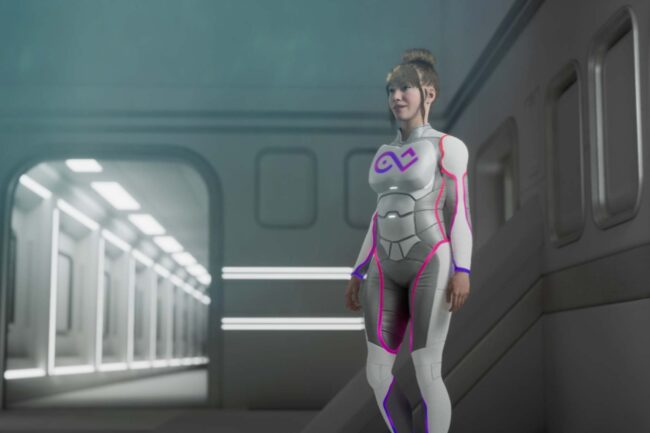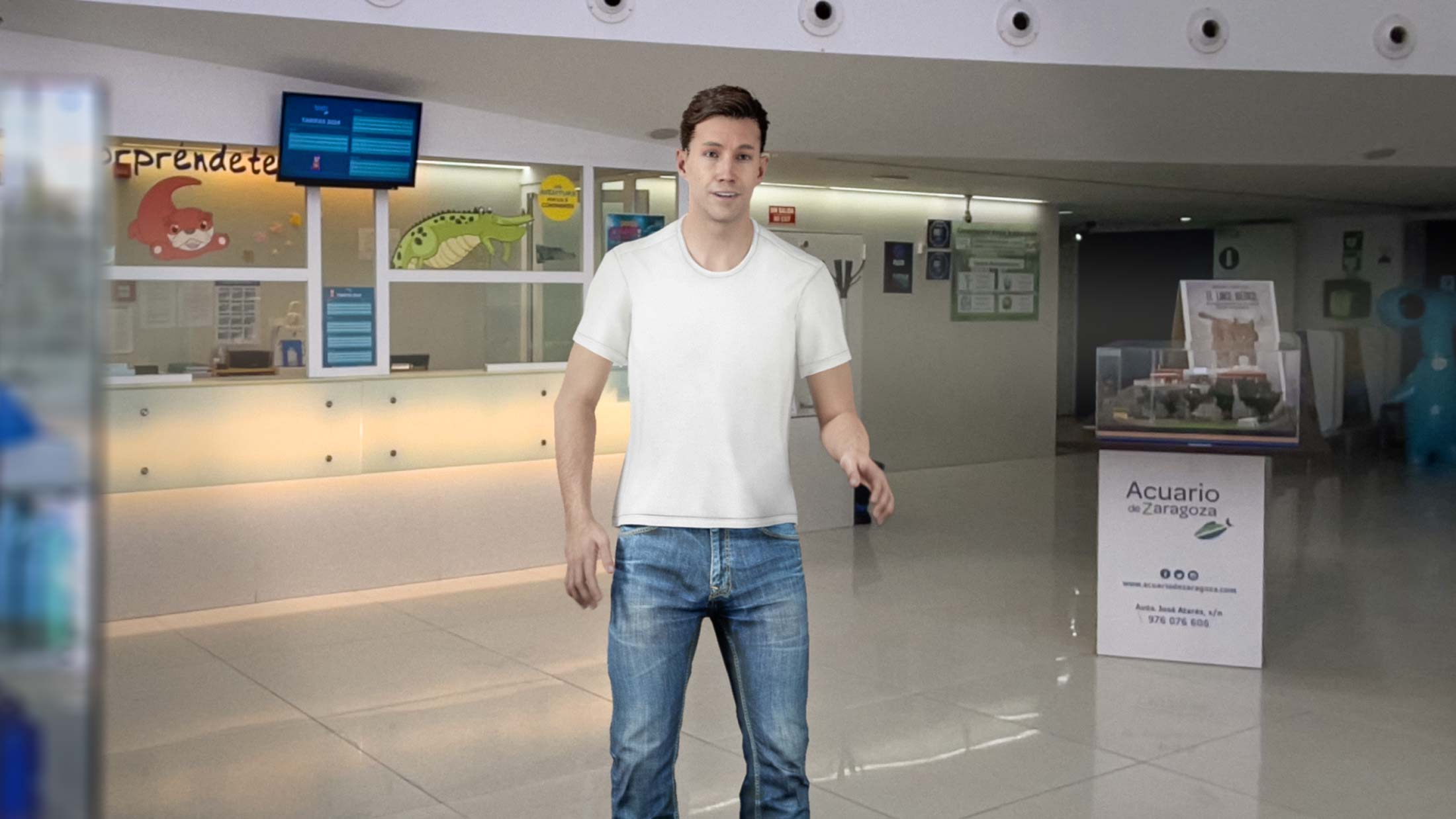Artificial Intelligence in tourism: characteristics and examples
Artificial Intelligence in tourism: characteristics and examples
In the current era, if there is one technology that is transforming the business world it is the Artificial Intelligence (AI). Where the tourism sector is no exception.
AI tools have demonstrated their ability to drive efficiency, make predictions, analyze large amount of dataautomate processes and revolutionize customer service through hyper-personalization.
Key points for tourism that represent the digital transformation of its travel experiences.
In this post, we will analyze in detail all the applications and use cases of the Artificial Intelligence in tourismThe project is based on the use of the new technology, its characteristics and examples of current projects.
Artificial Intelligence applied to tourism
If we look at the definition of Artificial IntelligenceThis technology is defined as the ability of machines to perform tasks that normally require human intelligence. Tasks such as learning, decision making and pattern recognition.
These are a combination of algorithms and machine learning models that seek to act and/or think like human beings. Acquiring the cognitive capabilities of a person. Its applications in the business world have great potential to streamline and deepen data analysis and content personalization.
In relation to the Generative Artificial Intelligence (Gen AI)This technology has also proven to be an ally in the area of creativity, with the generation of images and texts with a high level of detail.
In the tourism sector, AI enables companies in the tourism industry to generate customized content in real timeThe new technology allows to automate and optimize processes and even incorporate virtual assistants / AI avatars that respond to all the needs of tourists. Becoming personalized guides that humanize the interaction with tourists and are trained with an extensive database of the tourist destination.
About avatars endowed with Artificial Intelligence which can take the form of a robot such as iUrban's virtual travel agent, Cicerone, or one of the most illustrious characters of universal literature such as Miguel Cervantes for the touristic visit to the Alcázar de San Juan. Cervantes IA is able to offer visitors all kinds of answers about its history, its novel and about the visit to one of the most emblematic places in Castilla La Mancha.
You may be interested in → Tourism and technology: characteristics and advantages.
Characteristics and benefits of Artificial Intelligence applied in tourism
Artificial Intelligence has demonstrated its ability to boosting efficiencyto improve the customer experience and to open new business opportunities in the tourism industry.
From the hyper-personalization of services and offers of smart destinationsWe also offer multilingual customer service in real time or the generation of virtual guides that attend to all kinds of doubts and needs. All this with the objective of improve the travel experience and customer satisfaction.
The following are the main characteristics and benefits of incorporating Artificial Intelligence in the activities of tourism companies:
Improved user experience
One of the advantages offered by the incorporation of this technology is the improvement of the user experience. Facilitating the interaction between the company and the traveler at three key points: comfort, customization y immediate availability of information.
Thanks to Artificial Intelligence, travel companies and travel agencies are able to offer their customers a more efficient and effective service. total autonomy to customize your trip based on your interests and preferences.
For example, offering suggestions of restaurants, tourist points of interest and even managing the AI itself the booking of activities, accommodation and trips. Improving the customer experience by providing information and useful tips before, during and after the trip.
Management of the tourist offer
Beyond personalized traveler service, AI is helping tourism companies to manage and optimize travel and accommodation offers more efficiently.
By analyzing real-time data from different internal and external sources, Artificial Intelligence is capable of forecast demand, adjust prices y maximizing occupancy and tourism services. Playing a key role in optimizing resources and maximizing profits. Helping tourism companies make more informed decisions by bringing together Artificial Intelligence and Big Data.
Detection of user patterns
Artificial Intelligence in tourism allows customize the tourist offeradapting it to the interests and preferences of each traveler. Identifying patterns and trends in travelers' behavior.
All thanks to AI algorithms that analyze demographic data, travel booking history, preferences and other information of interest to provide personalized recommendations. Creating unique experiences e individualized for each customer.
In addition, thanks to this technology, tourism companies receive real-time feedback about the needs, questions, opinions and doubts of the users. By being able to make a record by type of user of all interactions with Artificial Intelligence.
Personalized attention
One of the main benefits of the incorporation of Artificial Intelligence in the tourism industry is the leap in quality and personalization in customer service.
Thanks to AI tools, travelers make their queries more enjoyable and accessible, including through virtual travel agents trained with Generative Artificial Intelligence with whom they establish an natural conversation. Both in the tourist spot itself through physical totems and through its own mobile and website, as in the case of Cicerone, iUrban's robot that manages a virtual travel agency in 95 languages.
Applications of Artificial Intelligence in the tourism sector
As main applications of Artificial Intelligence in the tourism sector we highlight:
1. Automatic translators
The communication and interaction of travelers with the tourism destination is fundamental in this industry, especially when we talk about the international level.
The automatic translations facilitate communication between people and languages. Artificial Intelligence enhances this communication by performing higher quality translations by processing natural language, and offering voice and intonation as a key point. AI even becomes the intermediary in the conversation.
A translation that can also be offered on websites, applications and in the tourist offices themselves, as it is provided with AI avatars who can serve visitors in different languages.
Pricing
Undoubtedly, one of the most demanded strategies by tourism companies when it comes to managing the sales of products/services and resource optimization is pricing.
An action that thanks to the latest advances in AI tools has been democratized to different types and sizes of companies. Making it possible for tourism companies to adapt in real time to the needs and demands of the market in a more efficient and controlled manner.
3. Chatbots
Generative AI-powered ChatBots offer a more efficient and effective way to near and in real time of interacting with travelers in the tourism sector.
These chats answer frequently asked questions, provide information on reservations and offer personalized recommendations. They are able to understand natural language and adapt their tone to that of the interlocutor. Improving traveler satisfaction.
4. Virtual assistants
Going one step further than Chatbots, we find the avatars / AI assistants. Virtual beings in which the Artificial Intelligence becomes humanized to offer a more natural experience when it comes to conversing, resolving doubts and providing information to users.
Beyond chat and text, virtual avatars offer a bidirectional interaction where the Generative Artificial Intelligence talks, reads and listens to you thanks to its personalized training in terms of content, tone and language.
Virtual assistants who, in hotels and vacation destinationsbecome true digital butlers, always accessible to guests, both on the hotel app and at the front desk.
If you are interested, learn more about the Generative Avatars with Artificial Intelligence.
Examples of Artificial Intelligence in tourism
From an AI that manages an entire travel agency such as Cicerone or avatars that take the form of characters as characteristic as Goya or Cervantes to show the benefits of their places of origin at fairs such as FITUR. Artificial Intelligence is already present in the tourism sectorNow is the time to take the leap in its integration into travel experiences.
The future of the tourism sector is the development of experiences that connect with users, that are surprising, unique and that satisfy the needs of tourists. At Imascono we have been working for more than twelve years with national and international tourism companies, enhancing their business models thanks to the latest technologies.
For this purpose, we have a team of 30 engineers and developers specialized in Artificial Intelligence, Metaverse y Extended Reality that can help you make the leap to these great technological advances with such innovative proposals as V-E-G-A.
Do you need a Artificial Intelligence? ¡Contact with us!






